Key Highlights:
- Israel conducted an airstrike on the Iranian embassy in Damascus on April 1, 2024
- Iran retaliated with a barrage of missiles, drones, and cruise missiles on April 14, 2024
- Drones involved in the attack took off from within Iran and flew a short distance before being intercepted
Iran’s Foreign Minister, Hossein Amirabdollahian, addressed the recent overnight attack on Iran, stating that investigations are ongoing to determine the origin and motives behind the incident. As of now, there is no conclusive evidence linking the attack to Israel, as emphasized by Amirabdollahian while downplaying the severity of the strike.
You Can Also Read: How a Grand Bargain Can Ease Iran-Israel Tensions?
Amirabdollahian revealed that the drones involved in the attack took off from within Iran, flew a short distance before being intercepted. He described the drones as more akin to toys than sophisticated military equipment, highlighting the limited impact of the incursion.
“It has not been proved to us that there is a connection between these and Israel,”
– Hossein Amir-Abdollahian
Minister of Foreign Affairs of Iran
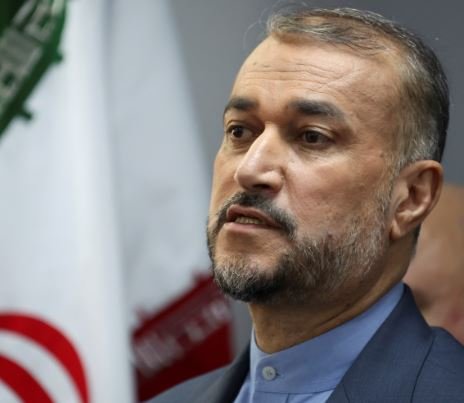
In a warning to potential aggressors, Amirabdollahian stated that any further actions against Iran’s interests would trigger an immediate and robust response from Tehran. However, he also indicated that if no further provocations occur, Iran would consider the matter concluded.
However, the current state of the Iran-Israel conflict is tense, with both nations engaging in a series of tit-for-tat attacks.
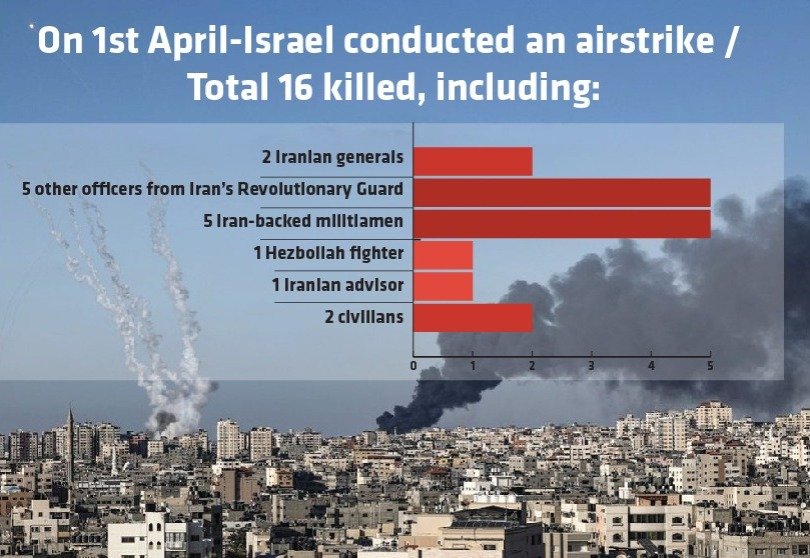
Escalating Tensions
In the midst of escalating tensions, the Middle East has been rocked by a series of unprecedented attacks between Israel and Iran, signaling a significant escalation in their enduring conflict. The first of these attacks took place on April 1, 2024, when Israel conducted an airstrike on the Iranian embassy in Damascus, resulting in the tragic loss of 16 lives, including 7 Islamic Revolutionary Guard Corps soldiers and 2 civilians.
The response was swift. On April 14, 2024, Iran retaliated with a barrage of over 120 ballistic missiles, 170 drones, and more than 30 cruise missiles.
Fast forward to April 19, Israel retaliated with a missile attack against Iran. Air defenses targeted a major air base in Isfahan, situated some 340 km south of Tehran. This base has long housed Iran’s fleet of American-made F-14 Tomcats, purchased before the 1979 Islamic Revolution, along with other nuclear sites.
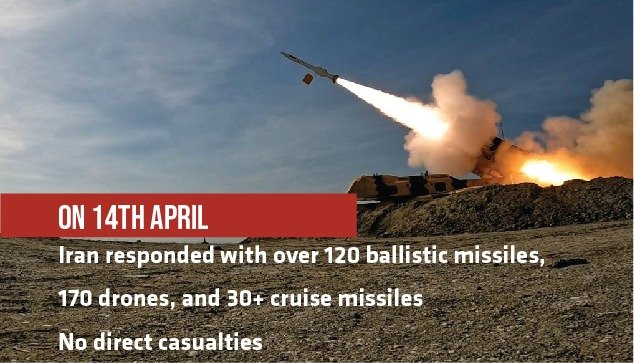
Will this increase tensions between Israel and Iran?
The full extent of the impact of this recent attack is still emerging, and it remains uncertain if Iran will choose to retaliate. Israeli Prime Minister Benjamin Netanyahu faces conflicting demands from certain military leaders and political allies to retaliate against Iran, as reported by BBC International Editor Jeremy Bowen. Israel is facing immense international pressure from the US and other Western allies to refrain from any actions that could potentially escalate the long-standing proxy conflict between the two Middle Eastern adversaries into a direct confrontation.
This escalation in hostilities unfolds in the midst of the Gaza war, where the Israeli military is engaged in combat with the Iran-backed Hamas.
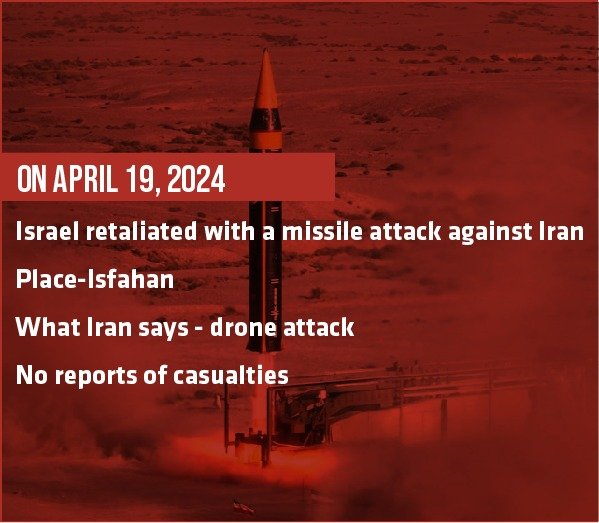
What Iran Says?
According to the state-run IRNA news agency, air defense batteries in Iran fired on Friday after reports of explosions near a major air base in the city of Isfahan. While it remains unclear if the country was under attack, tensions remain high following Iran’s unprecedented missile-and-drone attack on Israel. The Israeli military has not yet responded to the situation.
IRNA stated that the defenses fired across several provinces, but did not provide details on the cause of the battery activation. People in the area reported hearing the sounds of the explosions.
In particular, IRNA mentioned that air defenses targeted a major air base in Isfahan, which has long been home to Iran’s fleet of American-made F-14 Tomcats, purchased before the 1979 Islamic Revolution. State television acknowledged the presence of ‘loud noise’ in the area.
Isfahan is also associated with Iran’s nuclear program, including the underground Natanz enrichment site, which has been repeatedly targeted by suspected Israeli sabotage attacks.
Meanwhile, Israel has vowed to respond to Iran’s weekend attack, Additionally, the U.S. recently vetoed a U.N. resolution that would have facilitated full United Nations membership for the state of Palestine, with 12 members in favor, the United States opposed, and two abstentions in the 15-member Security Council12.
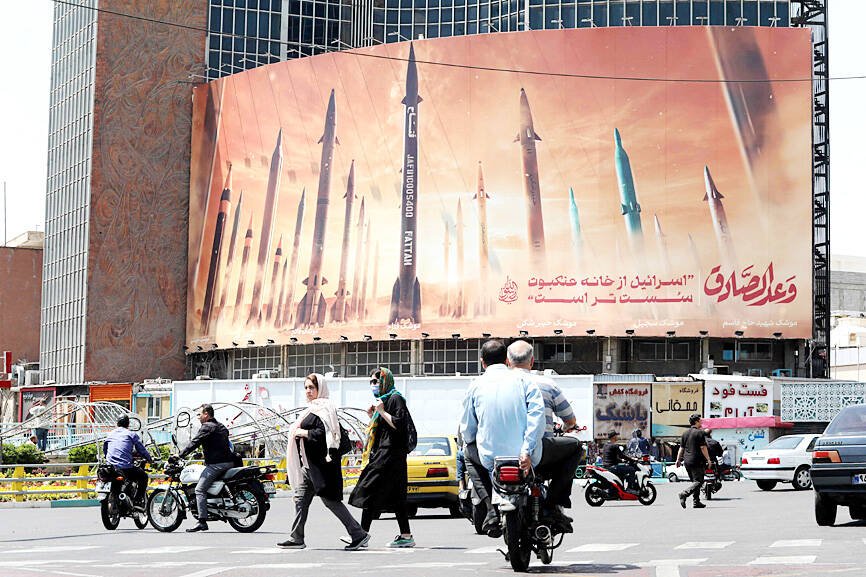
What has the reaction in Israel and around the world been?
Several reactions from within Israel have underscored the nation’s political rifts.
Ultra-nationalist Security Minister Itamar Ben Gvir characterized the attack on Iran as ‘weak’ or ‘ineffective’.
In retaliation, Israeli opposition leader Yair Lapid demanded his dismissal, condemning his statement as a source of mockery and embarrassment for Israel.
The UK government refrained from commenting on the strike directly but advised Israel to steer clear of ‘major escalation’ while asserting its ‘right to self-defense’.
European Commission President Ursula von der Leyen urged all parties to abstain from further actions.

Here are the international responses following reports of Israel’s attack on the Iranian province of Isfahan, home to military bases and nuclear facilities:
UN Secretary-General Antonio Guterres emphasized the urgent need to halt the dangerous cycle of retaliation in the Middle East, as stated by his spokesperson.
RUSSIA
Russia communicated to Israel that Iran seeks to avoid escalation, according to Moscow’s Foreign Minister Sergei Lavrov. Lavrov stated that Russia conveyed this message during telephone exchanges with Israeli leadership, underscoring Iran’s desire for de-escalation.
UAE
The United Arab Emirates’ foreign ministry expressed concern about escalating regional tensions and urged utmost restraint to prevent serious repercussions.
JORDAN
Jordan’s Foreign Minister emphasized the necessity to cease Israeli-Iranian retaliations, warning against the dangers of regional escalation.
GERMANY
German Chancellor Olaf Scholz called for de-escalation in the aftermath of the strike on Isfahan, expressing Berlin’s commitment to working with partners towards this goal.
G7
G7 foreign ministers urged all parties involved to prevent further escalation in the Middle East, emphasizing the imperative to work towards de-escalation. They demanded that Iran and its affiliated groups cease their attacks.
SPAIN
Spanish Prime Minister Pedro Sanchez called for restraint from all sides to prevent an escalation of the conflict in the Middle East.
JAPAN’S CHIEF CABINET SECRETARY YOSHIMASA HAYASHI
Japan expressed deep concern over the situation in the Middle East and condemned actions leading to escalation. Japan pledged to continue diplomatic efforts to prevent further deterioration of the situation.
CHINA
China opposed any actions escalating tensions and committed to playing a constructive role in de-escalating the situation.
IAEA
The International Atomic Energy Agency confirmed no damage to Iran’s nuclear sites and reiterated its call for extreme restraint from all parties.
OMAN
Oman urged the international community to focus on ceasefire efforts in Gaza and to seek just and lasting solutions to the Palestinian issue.
UK
The UK condemned Iran’s missile barrage against Israel and affirmed Israel’s right to self-defense. However, UK Prime Minister Rishi Sunak emphasized the importance of avoiding significant escalation and promoting calmness across the region.
ITALY
Italy urged caution to prevent escalation and emphasized the seriousness with which the government is monitoring the situation. Foreign Minister Antonio Tajani and his Swedish counterpart Tobias Billstrom called for an end to the exchange of hostilities and escalation.
These reactions reflect the international community’s concern over the escalating conflict between Iran and Israel and the pressing need for diplomatic efforts to defuse tensions and prevent further violence in the region. As the situation continues to unfold, concerted efforts from all parties will be crucial in achieving lasting peace and stability.


